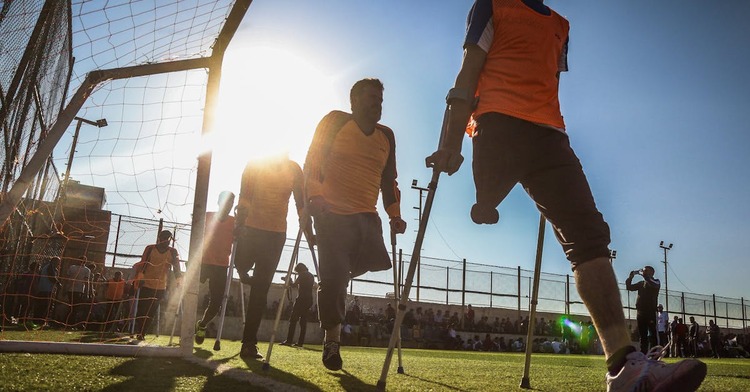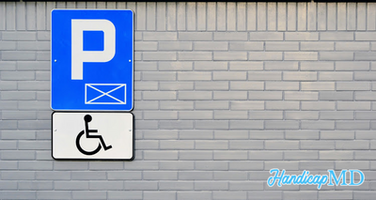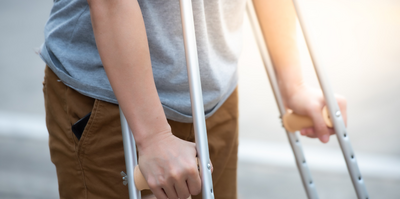
Adjusting to Life with a Disability: Embracing Change and Finding New Possibilities
Adjusting to life with a disability can be a difficult transition. We often take our health for granted—until it’s gone. Then, it’s all too easy to obsess over what we’ve lost. However, while you can’t go back in time to a healthier you or wish away your limitations, you can change how you think about and cope with your disability. You are still in control of your life, and there are many ways to improve your independence, sense of empowerment, and outlook. No matter your disability, it’s entirely possible to overcome the challenges you face and enjoy a full—and fulfilling—life.
Understanding the Emotional Impact
Most of us expect to live long, healthy lives. When you’re hit by a disabling illness or injury, it can trigger a range of unsettling emotions and fears. You may wonder how you’ll be able to work, find or keep a relationship, or even be happy again. While living with a disability isn’t easy, it doesn’t have to be a tragedy. You are not alone. Millions of people have traveled this road before you (the CDC estimates that 1 in 4 Americans lives with a disability) and found ways to not just survive but thrive. You can, too.

GET DISABLED PERMIT ONLINE TODAY!
Learn to Accept Your Disability
Accepting your disability can be incredibly difficult. Acceptance can feel like giving in—throwing in the towel on life and your future. But refusing to accept the reality of your limitations keeps you stuck. It prevents you from moving forward, making the changes you need to make, and finding new goals.
Give Yourself Time to Mourn
Before you can accept your disability, you first need to grieve. You’ve suffered a major loss—not just the loss of your healthy, unlimited body, but likely the loss of some of your plans for the future. Don’t try to ignore or suppress your feelings. It’s only human to want to avoid pain, but just like you won’t get over an injury by ignoring it, you can’t work through grief without allowing yourself to feel it and actively deal with it. Allow yourself to fully experience your feelings without judgment.
You’re likely to go through a roller coaster of emotions—from anger and sadness to disbelief. This is perfectly normal. And like a roller coaster, the experience is unpredictable and full of ups and downs. Just trust that with time, the lows will become less intense, and you will begin to find your new normal.
Coming to Terms with Your New Reality
It’s healthy to grieve the life you’ve lost, but it’s not healthy to continue looking back and wishing for a return to your pre-disability “normal.” As tough as it is, it’s important to let go of the past and accept where you are.
Happiness in a "Broken" Body: It may not seem like it now, but you can build a happy, meaningful life for yourself, even if you’re never able to walk, hear, or see like you used to. Search for inspiring stories of people with disabilities who are thriving and living lives they love. Their successes can help you stay motivated during tough times.
Focus on What You Can Do: Spending lots of time thinking about the things your disability has taken from you is a surefire recipe for depression. Mourn the losses, then move on. Focus on what you can do and what you hope to do in the future. This gives you something to look forward to.
Educate Yourself: Learn as much as possible about your disability. Understanding what you’re facing and what to expect will help you prepare yourself and adjust more quickly.
Minimizing Your Disability’s Impact
Your disability has already changed your life in big ways. It doesn’t help to live in denial about that. You’ve got limitations that make things more difficult. But with commitment, creativity, and a willingness to do things differently, you can reduce the impact your disability has on your life.
Be Your Own Advocate: Educate yourself about your rights and the resources available to you. As you take charge, you’ll also start to feel less helpless and more empowered.
Embrace Adaptive Technologies: While you may not be able to change your disability, you can reduce its impact on your daily life by seeking out and embracing adaptive technologies and tools. If you need a device such as a prosthetic, a white cane, or a wheelchair to make your life easier, use it. Let go of any embarrassment or fear of stigma.
Set Realistic Goals: A disability forces you to learn new skills and strategies. Be patient with yourself. Every small step forward counts. Eventually, you’ll get there.
Seeking Help and Support
When struggling with a disability, it’s easy to feel misunderstood and alone. You may be tempted to withdraw from others and isolate yourself. But staying connected to others will make a world of difference in your mood and outlook.
Nurture Important Relationships: Spending time with family and friends will help you stay positive, healthy, and hopeful. Sometimes, you may need a shoulder to cry on or someone to vent to. But don’t discount the importance of setting aside your disability from time to time and simply having fun.
Join a Disability Support Group: Participating in a support group for people dealing with similar challenges helps combat loneliness and isolation. You’ll realize you’re not alone, and you’ll benefit from the collective wisdom of the group.
Accept Help: Refusing to seek out needed assistance can delay your progress or make you worse, either physically or emotionally. Let go of the fear that asking for support will inspire pity. Allow the people who care about you to pitch in. Not only will you benefit, but it will also make them feel better.
Consider Talking to a Mental Health Professional: The right therapist can help you process the changes you’re facing, work through your grief, and reframe your outlook in a more positive, realistic way.
Finding Meaning and Purpose
A disability can take away many aspects of your identity, leaving you questioning who you are, what your value is, and where you fit in society. It’s important to find new things that make you feel good about yourself—things that give you a renewed sense of meaning and purpose.
Volunteer: Volunteering is a great way to feel more productive and like you’re making a difference. It’s something you can do even if you have limited mobility or can’t work. Pick a cause you’re passionate about and figure out how you can get involved.
Develop New Hobbies and Activities: Staying engaged will make a big difference in your mental health. Look for creative ways to participate differently in old favorites or develop new interests.
Give Back to Those Who Help You: Finding ways to reciprocate the help you receive can feel empowering. Even small gestures like a thank-you card or a genuine compliment count.
Take Care of an Animal: Caring for a pet can bring joy and companionship into your life and help you feel less isolated. If you aren’t able to have a pet, there are other ways to find animal companionship, such as volunteering at a local animal shelter.
Making Health a Top Priority
To feel your best, it’s important to support and strengthen your health with regular exercise, a healthy diet, plenty of sleep, and effective stress management.
Exercise: Regular exercise helps reduce anxiety and depression, relieve tension and stress, and improve sleep. Find creative ways to exercise within your limitations and listen to your body to avoid injury.
Eat Well: Nutritious eating is important for everyone, especially when battling physical limitations or health complications. Focus on eating balanced meals, getting plenty of high-quality protein, minimizing sugar and refined carbs, and drinking plenty of water.
Prioritize Sleep: Quality sleep is essential for overall health. Establish a regular sleep schedule, create relaxing bedtime rituals, and turn off all screens at least one hour before sleep.
Manage Stress: Stress can exacerbate many symptoms, so it’s important to find ways to manage it. Practice relaxation techniques, carve out a healthy work-life balance, and learn healthier coping strategies.
Adjusting to life with a disability is challenging, but with the right mindset, support, and strategies, you can lead a full, happy, and meaningful life. Remember, you are not alone, and there are resources and communities ready to support you every step of the way.
.png)





